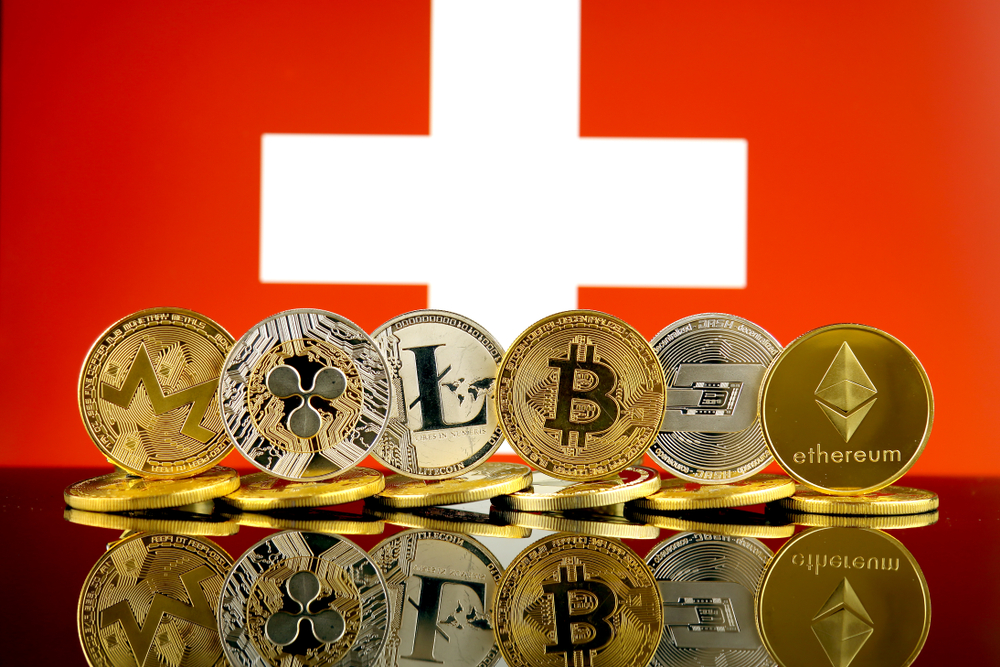Swiss State Bank Adds New Crypto Services
03.07.2024 13:00 1 min. read Alexander Stefanov
While Bitcoin and the broader cryptocurrency markets are experiencing a period of stagnation, PostFinance, a bank wholly owned by the Swiss government, has provided some positive news for 5 altcoins.
PostFinance, one of the largest financial institutions in Switzerland, has announced that it now offers trading and custody services for these cryptocurrencies – Avalanche, Cardano, Polkadot, XRP и Solana.
Fun Fact: when I was at Ethereum, Postfinance was actually one of our first banking partners. They were always nice and easy to work with. https://t.co/w9jCTXDeeH
— Charles Hoskinson (@IOHK_Charles) July 1, 2024
Cardano founder Charles Hoskinson reacted positively to ADA’s inclusion in PostFinance, sharing on his X profile about his long-standing relationship with the bank.
“Fun fact: While we were in Ethereum, PostFinance was actually one of our first banking partners. They have always been nice and easy to work with”, Hoskinson said.
In response, the PostFinance team commented: “Hello, it’s always nice to see old friends! We are happy that Cardano is now part of our crypto offering”.
In April 2023, PostFinance partnered with Sygnum Bank to expand its cryptocurrency services.
This collaboration enables PostFinance customers to buy, store and sell cryptocurrencies such as Bitcoin (BTC) and Ethereum (ETH) through Sygnum’s B2B banking platform.
-
1
FTX Pushes to Dismiss Billion-Dollar Claim from 3AC
23.06.2025 15:00 1 min. read -
2
BIS Slams Stablecoins, Calls Them Ill-Suited for Modern Monetary Systems
26.06.2025 9:00 1 min. read -
3
ARK Invest Cashes In on Circle Rally as Stock Soars Past $60B Valuation
24.06.2025 19:00 1 min. read -
4
FTX Pushes Back Against $1.5B Claim From Defunct Hedge Fund 3AC
23.06.2025 11:00 1 min. read -
5
Trump’s ‘Big, Beautiful Bill’ Approved: What It Means for Crypto Markets
04.07.2025 7:00 3 min. read
Coinbase Strengthens DeFi Push With Opyn Leadership Acquisition
Coinbase has taken a major step toward expanding its decentralized finance (DeFi) presence by bringing onboard the leadership team behind Opyn Markets, a prominent name in the DeFi derivatives space.
Grayscale Urges SEC to Allow Multi-Crypto ETF to Proceed
Grayscale Investments has called on the U.S. Securities and Exchange Commission (SEC) to allow the launch of its multi-crypto ETF—the Grayscale Digital Large Cap Fund—arguing that further delays violate statutory deadlines and harm investors.
Robinhood Launches Ethereum and Solana Staking for U.S. Users
Robinhood has officially introduced Ethereum (ETH) and Solana (SOL) staking services for its U.S. customers, offering a new way for users to earn rewards on their crypto holdings.
Binance CEO Reveals What’s Fueling the Next Global Crypto Boom
Binance CEO Richard Teng shared an optimistic outlook on the future of cryptocurrencies during an appearance on Mornings with Maria, highlighting growing global acceptance, regulatory progress, and strategic reserve integration.
-
1
FTX Pushes to Dismiss Billion-Dollar Claim from 3AC
23.06.2025 15:00 1 min. read -
2
BIS Slams Stablecoins, Calls Them Ill-Suited for Modern Monetary Systems
26.06.2025 9:00 1 min. read -
3
ARK Invest Cashes In on Circle Rally as Stock Soars Past $60B Valuation
24.06.2025 19:00 1 min. read -
4
FTX Pushes Back Against $1.5B Claim From Defunct Hedge Fund 3AC
23.06.2025 11:00 1 min. read -
5
Trump’s ‘Big, Beautiful Bill’ Approved: What It Means for Crypto Markets
04.07.2025 7:00 3 min. read

